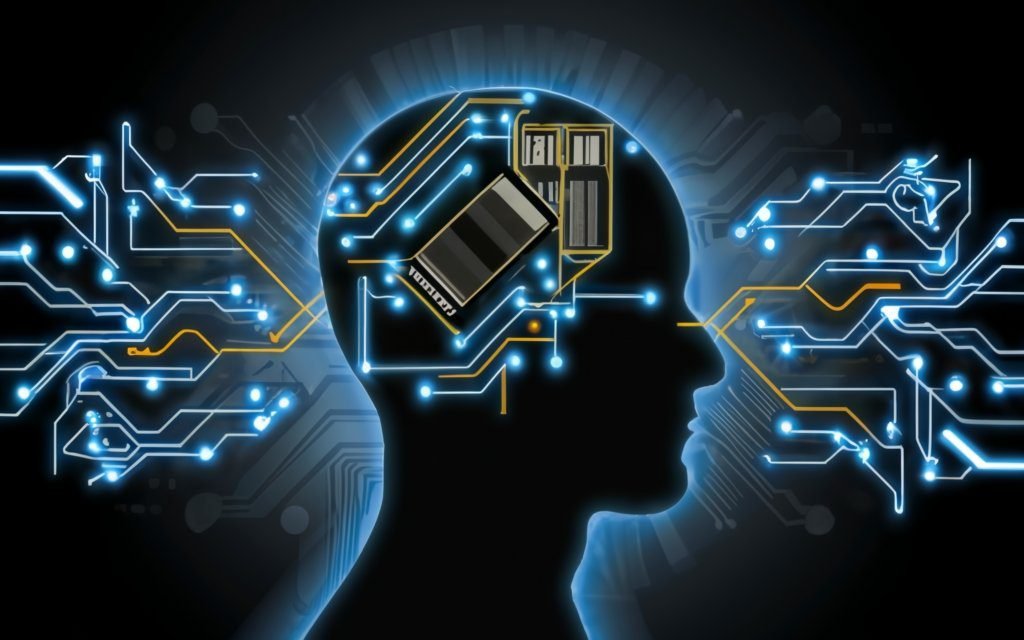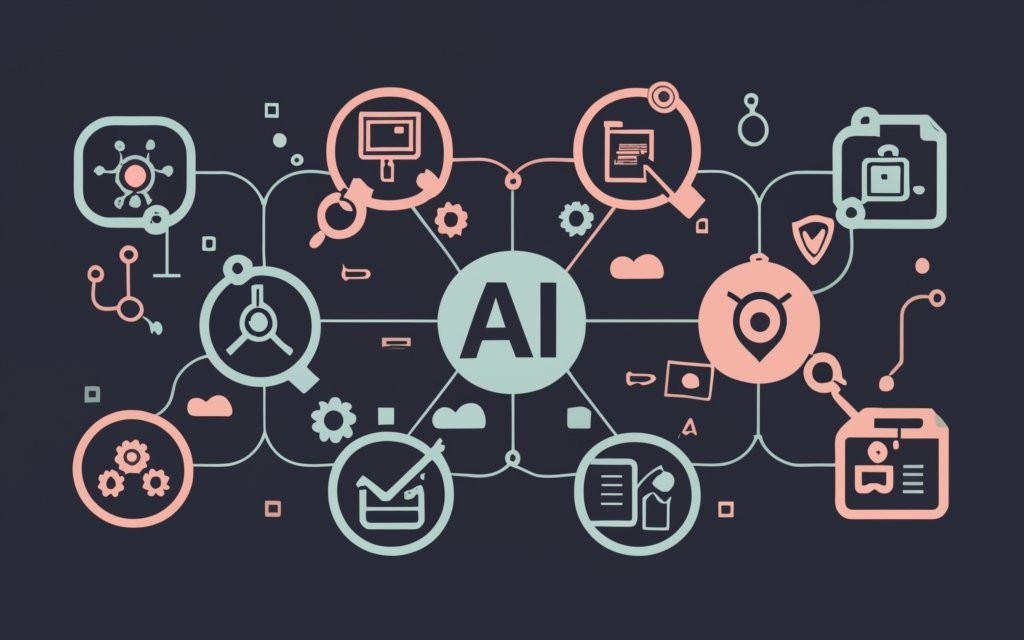Artificial Intelligence (AI), a term once confined to science fiction, has now become an indispensable part of our daily lives, transforming the way we work, interact, and live. In this in-depth guide, we’ll delve into the intricacies of AI, exploring its history, applications, ethical considerations, and future trends.
Table of Contents
Introduction

Definition of AI
Artificial Intelligence, commonly known as AI, encompasses the development of computer systems capable of performing tasks that traditionally require human intelligence. These tasks range from learning and reasoning to problem-solving, perception, and language understanding.
Significance in Today’s World
In the contemporary landscape, AI holds immense significance across various industries. Its ability to enhance efficiency, automate processes, and provide innovative solutions has positioned it as a driving force in today’s fast-paced world.
History of Artificial Intelligence
Early Beginnings
The roots of AI can be traced back to ancient civilizations, where the fascination with automata laid the foundation for the development of intelligent machines. However, the formal exploration of AI began in the mid-20th century with the advent of electronic computers.
Key Milestones
The progression of artificial intelligence through time has been punctuated by noteworthy achievements and pivotal milestones. From the creation of the first chess-playing computer to the emergence of expert systems, each milestone represents a leap in the evolution of AI.
Evolution Over the Years
AI has undergone a remarkable evolution, progressing from rule-based systems to the current era dominated by machine learning algorithms and deep neural networks. This evolution mirrors the complexity of the human brain.
How AI Works

Machine Learning
At the heart of AI is machine learning, a paradigm where algorithms learn from data and improve their performance over time. This enables AI systems to make predictions, recognize patterns, and adapt to changing circumstances.
Neural Networks
Inspired by the intricate network of neurons in the human brain, neural networks consist of interconnected nodes that process information. Deep learning, a subset of neural networks, has revolutionized AI by enabling the analysis of vast and complex datasets.
Deep Learning
Deep learning involves training artificial neural networks on extensive datasets, allowing them to automatically learn and perform tasks without explicit programming. This approach has fueled breakthroughs in image and speech recognition, pushing the boundaries of AI capabilities.
Applications of AI

Healthcare
In the healthcare sector, AI is a game-changer. It is employed in diagnostics, personalized medicine, and drug discovery, significantly improving patient outcomes and revolutionizing the industry.
Finance
AI plays a crucial role in the financial sector, powering applications such as fraud detection, algorithmic trading, and customer service. These applications enhance efficiency and decision-making in the complex world of finance.
Education
The impact of AI on education is profound. Through personalized learning experiences, adaptive tutoring systems, and intelligent assessment tools, AI is reshaping the educational landscape, catering to individual student needs.
Entertainment
Entertainment is another domain where AI is making waves. From recommendation algorithms on streaming platforms to AI-generated content, the entertainment industry leverages AI to captivate audiences and enhance user experiences.
Ethical Considerations
Bias in AI
When AI systems learn from old data, they might pick up existing biases. It’s important to fix these biases in AI to make sure that the results it gives are not only fair but also equal for everyone.
Privacy Concerns
The extensive data processed by AI systems raises legitimate concerns about user privacy. Striking a delicate balance between innovation and privacy protection is imperative in the development and deployment of AI.
Job Displacement
One of the prevalent fears surrounding AI is job displacement. Even though AI has the capability to automate specific tasks, it simultaneously generates fresh employment possibilities. Reskilling the workforce and creating new avenues for employment are essential considerations.
Future Trends
AI in Robotics
The integration of AI in robotics is an exciting frontier. It is paving the way for advancements in automation, leading to more sophisticated and adaptable robotic systems with broad applications.
AI and Creativity
AI is not just limited to logical tasks; it is entering the realm of creativity. Collaborations between humans and AI are fostering new dimensions of innovation in fields such as art, music, and design.
Enhanced Personalization
AI-driven personalization is becoming increasingly prevalent. From content recommendations to targeted marketing, AI tailors experiences based on individual preferences, enhancing user satisfaction.
Debunking AI Myths
Superintelligence
Contrary to some popular beliefs, achieving superintelligent AI that surpasses human capabilities remains a distant prospect. Current AI systems are specialized and lack the broad understanding inherent in human intelligence.
Job Replacement Fear
While AI may automate routine tasks, the fear of widespread job replacement is often exaggerated. The human touch, creativity, and emotional intelligence remain irreplaceable, ensuring the resilience of certain roles to automation.
Lack of Human Control
Addressing concerns about AI operating beyond human control is essential. AI systems are designed with human oversight and control mechanisms, governed by ethical guidelines and regulations.
AI in Everyday Life
Virtual Assistants
Virtual assistants like Siri and Alexa have seamlessly integrated into daily routines, providing convenience and assistance in various tasks, from setting reminders to answering queries.
Social Media Algorithms
AI algorithms power social media platforms, shaping content feeds, and driving user engagement through personalized recommendations. The algorithms continuously learn and adapt to user behavior.
Smart Devices
The proliferation of smart devices exemplifies the role of AI in creating interconnected and intelligent living spaces. From thermostats to home security systems, AI enhances comfort, security, and energy efficiency.
Challenges in AI Development
Technical Challenges
The development of AI faces technical challenges such as scalability, interpretability, and overcoming the limitations of current algorithms. Researchers and engineers are actively working to address these challenges for the advancement of AI.
Regulatory Issues
The ethical use of AI requires robust regulations to address concerns related to privacy, accountability, and transparency in algorithmic decision-making. Striking the right balance is crucial for fostering trust in AI technologies.
Public Perception
Building trust in AI technologies is an ongoing challenge. Transparent communication and education play pivotal roles in dispelling fears and misconceptions among the public. Understanding the benefits and risks is key to fostering acceptance.
AI and the Future

Collaboration Between Humans and AI
The future of AI lies in collaborative efforts between humans and intelligent machines. Rather than replacing humans, AI is expected to augment human capabilities, offering solutions to complex challenges that require a combination of human intuition and machine precision.
Potential Breakthroughs
Anticipated breakthroughs in AI include advancements in natural language processing, reinforcement learning, and the development of AI systems with a deeper understanding of human context. These breakthroughs will contribute to the versatility and effectiveness of AI applications.
Continuous Evolution
AI is on a trajectory of continuous evolution. Staying updated on the latest developments, participating in ongoing discussions, and fostering a culture of innovation are crucial for both professionals and the general public to navigate the ever-changing landscape of AI.
Conclusion
In conclusion, demystifying AI reveals a technology that is not only complex but also transformative. Understanding its history, unraveling how it works, exploring its diverse applications, addressing ethical considerations, and anticipating future trends are essential for individuals and industries alike to harness the full potential of AI responsibly.
FAQs
Is AI a threat to job security?
Even though AI has the capability to automate specific tasks, it simultaneously generates fresh employment possibilities. Human skills such as creativity and emotional intelligence remain invaluable. The dynamic job market adapts to technological changes.
How can bias in AI be addressed?
Addressing bias in AI requires a multi-faceted approach. It involves using diverse and representative training data, continuous monitoring, and implementing ethical guidelines throughout the development process.
Are there limits to what AI can achieve?
AI has remarkable capabilities, but it is not a panacea. Certain tasks require human intuition, creativity, and understanding that AI, with its current capabilities, cannot replicate. It adds to human capabilities instead of completely taking them over.
What role does ethics play in AI development?
Ethics is paramount in AI development. It ensures the fair, transparent, and responsible use of technology. Developers must adhere to ethical guidelines to address concerns like bias, privacy, and accountability.
What steps can individuals take to get ready for a future dominated by AI?
Individuals can prepare for the AI-driven future by embracing continuous learning, adaptability, and staying informed about AI developments. Acquiring skills in areas like data science and AI will be valuable in the evolving job market.
Enjoyed this informative article? Explore additional engaging and enlightening content here.



